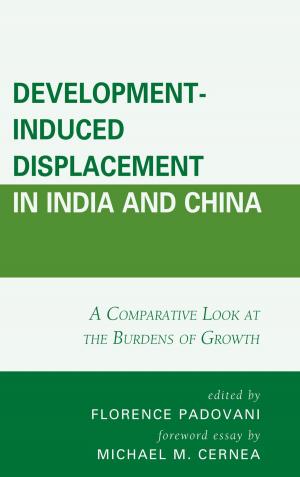Favela Media Activism
Counterpublics for Human Rights in Brazil
Nonfiction, History, Americas, South America| Author: | Leonardo Custódio | ISBN: | 9781498530002 |
| Publisher: | Lexington Books | Publication: | July 24, 2017 |
| Imprint: | Lexington Books | Language: | English |
| Author: | Leonardo Custódio |
| ISBN: | 9781498530002 |
| Publisher: | Lexington Books |
| Publication: | July 24, 2017 |
| Imprint: | Lexington Books |
| Language: | English |
What explains the engagement of low-income young people in media initiatives for political mobilization and social change in everyday life? Favela Media Activism: Counterpublics for Human Rights in Brazil responds to this question using an in-depth ethnographic and interdisciplinary study about the trajectories in media activism among young residents of low-income and violence-ridden favelas in socially unequal Rio de Janeiro. Leonardo Custódio provides multifaceted analyses of how favela youth engage in individual and collective media activist initiatives despite social class constraints and neoliberal imperatives in their everyday life. This book details processes experienced by young favela residents while becoming individuals who act to challenge and change patterns of discrimination, governmental neglect and drug-related violence. It is an important resource for scholars interested in the nuances of political engagement among marginalized youth in today’s world of hyper-connectivity, information abundance, and the persistence of racial and social inequalities.
What explains the engagement of low-income young people in media initiatives for political mobilization and social change in everyday life? Favela Media Activism: Counterpublics for Human Rights in Brazil responds to this question using an in-depth ethnographic and interdisciplinary study about the trajectories in media activism among young residents of low-income and violence-ridden favelas in socially unequal Rio de Janeiro. Leonardo Custódio provides multifaceted analyses of how favela youth engage in individual and collective media activist initiatives despite social class constraints and neoliberal imperatives in their everyday life. This book details processes experienced by young favela residents while becoming individuals who act to challenge and change patterns of discrimination, governmental neglect and drug-related violence. It is an important resource for scholars interested in the nuances of political engagement among marginalized youth in today’s world of hyper-connectivity, information abundance, and the persistence of racial and social inequalities.















